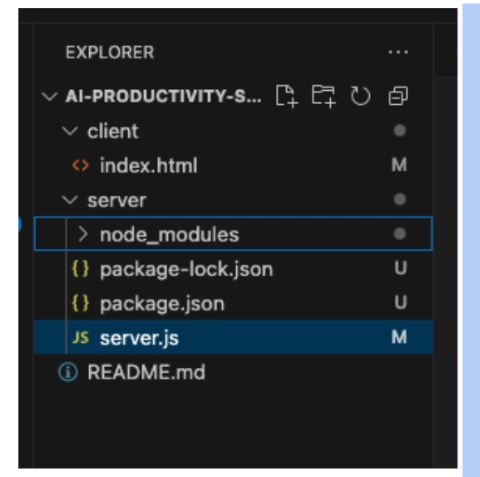What is a Domain Name System (DNS)?
Every time you visit a website by typing its name—say, clouddefense.ai—a complex process begins behind the scenes. The magic that connects your browser to the right server is powered by the Domain Name System (DNS). Think of DNS as the digital switchboard of the internet, transforming domain names into numerical IP addresses that computers can understand. Why DNS Matters The internet doesn’t operate on names—it uses IP addresses. But remembering numbers like 192.0.2.1 for every site would be a nightmare. DNS bridges the gap by mapping easy-to-remember URLs to these numerical identifiers, enabling seamless web navigation. How DNS Resolves Domains When you enter a website name, your computer sends a query to a recursive DNS resolver. If the answer isn't cached, the resolver contacts a hierarchy of DNS servers: Root Servers point to the correct domain extensions (like .com or .org) TLD Servers manage those extensions and direct queries further Authoritative Servers hold the exact IP address tied to the domain This chain of queries happens in a flash, bringing the requested website to your screen. Understanding the Two Main Types of DNS Servers Authoritative DNS Servers: These contain the original DNS records for a domain and give final answers to DNS queries. Recursive DNS Servers: They handle requests from users, performing lookups and caching results for faster future access. Common DNS Issues and What They Mean If you ever see the error “DNS server not responding,” it means your device couldn’t communicate with the DNS server. This can result from: Connectivity issues Misconfigured DNS settings Downtime at the DNS provider’s server DNS Lookup in Action A DNS lookup is the process of resolving a domain name into an IP address. This involves multiple handoffs between resolvers, root, TLD, and authoritative servers—working together to deliver results instantly. Choosing Between Free and Paid DNS Services Free DNS services are sufficient for most personal or small-scale use. However, premium DNS providers offer advantages like: Faster performance and higher uptime Enhanced security against cyberattacks Better tools for DNS record management Dedicated customer support Final Takeaway The Domain Name System is the backbone of digital communication. While it operates silently in the background, its role is anything but minor. DNS ensures reliable, secure, and fast internet access. By understanding how it works, you’re better equipped to troubleshoot issues, make smarter tech choices, and appreciate the invisible infrastructure powering your online world.


Every time you visit a website by typing its name—say, clouddefense.ai—a complex process begins behind the scenes. The magic that connects your browser to the right server is powered by the Domain Name System (DNS). Think of DNS as the digital switchboard of the internet, transforming domain names into numerical IP addresses that computers can understand.
Why DNS Matters
The internet doesn’t operate on names—it uses IP addresses. But remembering numbers like 192.0.2.1 for every site would be a nightmare. DNS bridges the gap by mapping easy-to-remember URLs to these numerical identifiers, enabling seamless web navigation.
How DNS Resolves Domains
When you enter a website name, your computer sends a query to a recursive DNS resolver. If the answer isn't cached, the resolver contacts a hierarchy of DNS servers:
- Root Servers point to the correct domain extensions (like .com or .org)
- TLD Servers manage those extensions and direct queries further
- Authoritative Servers hold the exact IP address tied to the domain
This chain of queries happens in a flash, bringing the requested website to your screen.
Understanding the Two Main Types of DNS Servers
- Authoritative DNS Servers: These contain the original DNS records for a domain and give final answers to DNS queries.
- Recursive DNS Servers: They handle requests from users, performing lookups and caching results for faster future access.
Common DNS Issues and What They Mean
If you ever see the error “DNS server not responding,” it means your device couldn’t communicate with the DNS server. This can result from:
- Connectivity issues
- Misconfigured DNS settings
- Downtime at the DNS provider’s server
DNS Lookup in Action
A DNS lookup is the process of resolving a domain name into an IP address. This involves multiple handoffs between resolvers, root, TLD, and authoritative servers—working together to deliver results instantly.
Choosing Between Free and Paid DNS Services
Free DNS services are sufficient for most personal or small-scale use. However, premium DNS providers offer advantages like:
- Faster performance and higher uptime
- Enhanced security against cyberattacks
- Better tools for DNS record management
- Dedicated customer support
Final Takeaway
The Domain Name System is the backbone of digital communication. While it operates silently in the background, its role is anything but minor. DNS ensures reliable, secure, and fast internet access. By understanding how it works, you’re better equipped to troubleshoot issues, make smarter tech choices, and appreciate the invisible infrastructure powering your online world.











































































































































































![[The AI Show Episode 142]: ChatGPT’s New Image Generator, Studio Ghibli Craze and Backlash, Gemini 2.5, OpenAI Academy, 4o Updates, Vibe Marketing & xAI Acquires X](https://www.marketingaiinstitute.com/hubfs/ep%20142%20cover.png)




























































































































![[DEALS] The Premium Learn to Code Certification Bundle (97% off) & Other Deals Up To 98% Off – Offers End Soon!](https://www.javacodegeeks.com/wp-content/uploads/2012/12/jcg-logo.jpg)


![From drop-out to software architect with Jason Lengstorf [Podcast #167]](https://cdn.hashnode.com/res/hashnode/image/upload/v1743796461357/f3d19cd7-e6f5-4d7c-8bfc-eb974bc8da68.png?#)








































































































.png?#)

































_Christophe_Coat_Alamy.jpg?#)
 (1).webp?#)





































































































![Apple Considers Delaying Smart Home Hub Until 2026 [Gurman]](https://www.iclarified.com/images/news/96946/96946/96946-640.jpg)
![iPhone 17 Pro Won't Feature Two-Toned Back [Gurman]](https://www.iclarified.com/images/news/96944/96944/96944-640.jpg)
![Tariffs Threaten Apple's $999 iPhone Price Point in the U.S. [Gurman]](https://www.iclarified.com/images/news/96943/96943/96943-640.jpg)




































































































































